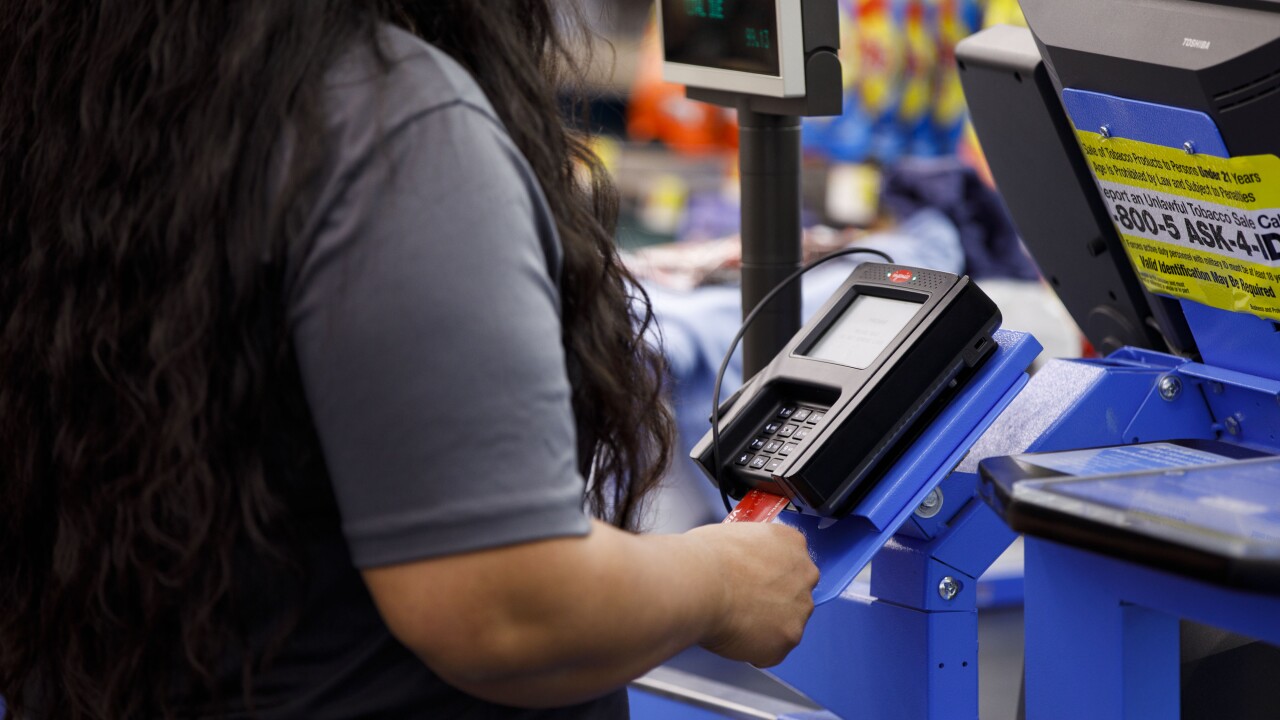Credit cards
Credit cards
-
The B, C and D tranches maintain minimum subordination percentages, 12.5%, 8.1% and 4.3%, respectively, allowing them to provide credit support for the class A notes.
June 20 -
A federal judge in Texas found that the Consumer Financial Protection Bureau had violated the CARD Act by barring banks from charging late fees for credit cards.
April 15 -
Amid troubling news of tariffs and layoffs, dropping delinquencies offer a rare sign of consumer health.
March 17 -
CEO Richard Fairbank told analysts executives have their "microscopes" out for any signs of trouble, but consumers remain "in a great place."
January 22 -
There is a three-year revolving period when the transaction will not make any principal payments to the notes unless an early amortization event occurs.
November 26 -
The buy now/pay later company beat analysts estimates on revenue and net income and is trying to get more frequent usage out of its customers.
November 8 -
A reserve account is initially 0% at closing. The target will shift between 1%, 2% and 3%, depending on whether the three-month average excess spread falls below certain thresholds.
November 5 -
The trust features early amortization event triggers, including excess spread percentages falling below the required amount for that period or principal payment rates falling below 10%.
October 18 -
The company, which helped consumers strategize their credit card payments and pivoted to a B2B model earlier this year, has sold its intellectual property two months after it folded.
October 9 -
Those metrics were merely a return to solid pre-pandemic levels and do not suggest a deterioration, says Moody's. Yet a broader, and more weakened employment picture is emerging, SMBC Nikko Securities says separately.
September 24 -
Since July 21, 2021, the cutoff date before its last deal, Avant's active credit card accounts increased 388%, to its current 1 million accounts.
September 11 -
The class A and class B notes benefit from credit enhancement levels of 12.50% and 8.75%, respectively, and the class A notes benefit from the subordination of class B certificates.
July 15 -
Investment banking fees shot up at the nation's largest bank, thanks to rebounds in M&A and the equity capital markets segment. And despite higher credit costs in the company's card business, a top bank executive expressed confidence in the health of U.S. consumers.
July 12 -
The deal benefits from excess spread, overcollateralization, and senior/subordinate enhancements.
June 27 -
Initially, the reserve account starts at 0.0%, but it will be funded to either 1.00%, 2.00% or 3.00%, depending on the level of the notes' three-month average excess spread.
June 13 -
A proposal from the Consumer Financial Protection Bureau to extend the same protections as credit cards to the fast-growing BNPL industry aims to protect consumers, but it could also stunt the nascent industry's growth, experts say.
June 4 -
A federal judge in Texas is locked in a back-and-forth with an appeals court over whether the industry's challenge to a cap on credit card late fees should be moved to Washington, D.C.
May 29 -
The number of borrowers who are at their credit limits is approaching its pre-pandemic level, and the percentage of balances that are sliding into delinquency has hit its highest rate in more than a decade, according to new research. Still, card companies are generally expressing optimism about their credit outlooks.
May 14 -
Price guidance was not available on the series 2024-1, the database notes that the series 2024-2 class A notes are expected to price between 63 and 65 basis points over the three-month interpolated yield curve.
April 22 -
Net charge-offs at the Charlotte, North Carolina-based bank increased by more than 80% in the first quarter compared with a year earlier. BofA executives say that the rising losses were in line with the bank's risk appetite.
April 16


















